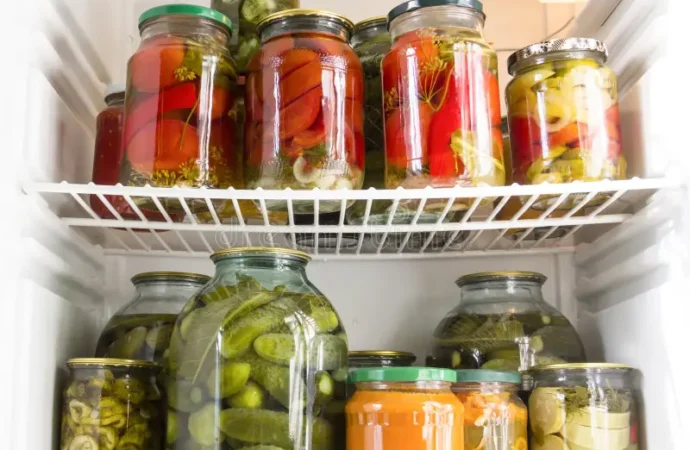Overview
With sustainability in focus, glass containers are replacing plastic in many kitchens. They’re reusable, recyclable, and a smart step toward reducing single-use plastic. Glass is non-toxic and non-porous, so it won’t leach chemicals like BPA into food. What you store is exactly what you get—pure and uncontaminated. Unlike plastic, glass doesn’t stain or hold on to odours, so yesterday’s curry won’t linger when you store fresh fruit the next day. And let’s be honest—food simply looks fresher and more appetising in glass containers.
Great for Canning and Freezing
Glass jars, especially those made for canning, are excellent for preserving jams, soups, or sauces. Experts at Michigan State University Extension advise discarding any jar with chips or cracks and using only those labelled safe for freezing. These can handle freezer jams, stocks, and broths without a problem.
The Catch: Handle With Care
The main drawback of glass is its fragility. While shattering inside the fridge is rare, sudden temperature changes can cause cracks. Placing hot food into a cold glass container—or moving a hot dish straight to the refrigerator—can trigger thermal shock. The rule is simple: let food cool before storing. Tempered or borosilicate glass (like Pyrex or Anchor Hocking) withstands temperature shifts better, but caution is still wise.
Pros of Using Glass in the Refrigerator
- Safe for food: No chemical leaching.
- Eco-friendly: Durable, reusable, and recyclable.
- Better freshness: Airtight lids keep food fresher longer.
- No stains or odours: Glass stays clear and clean.
- Versatile: Works in the fridge, microwave, and oven (with lids off).
Cons to Consider
- Heavier: Less convenient to carry.
- Breakable: A drop can ruin both the container and the food.
- Bulkier: Takes up more fridge space than slim plastic tubs.
Tips for Safe Use
- Cool the hot food before transferring it into a glass.
- Leave space at the top when freezing liquids, as they expand.
- Ensure lids seal tightly to maintain freshness.
- Stack carefully—don’t pile heavy containers on top.
- Invest in tempered glass designed for kitchen use.
The Bottom Line
Yes—glass containers are among the safest and most practical options for refrigerator storage. They keep meals fresher, prevent odours, and make your fridge look neat and organised. With a little care, you’ll avoid breakage and enjoy long-lasting, eco-friendly storage. Investing in good-quality glass isn’t just about safety—it’s about convenience, sustainability, and even a touch of style. After all, who doesn’t enjoy leftovers that look freshly made?
Source: The Times of India
 Food Manifest
Food Manifest 


















